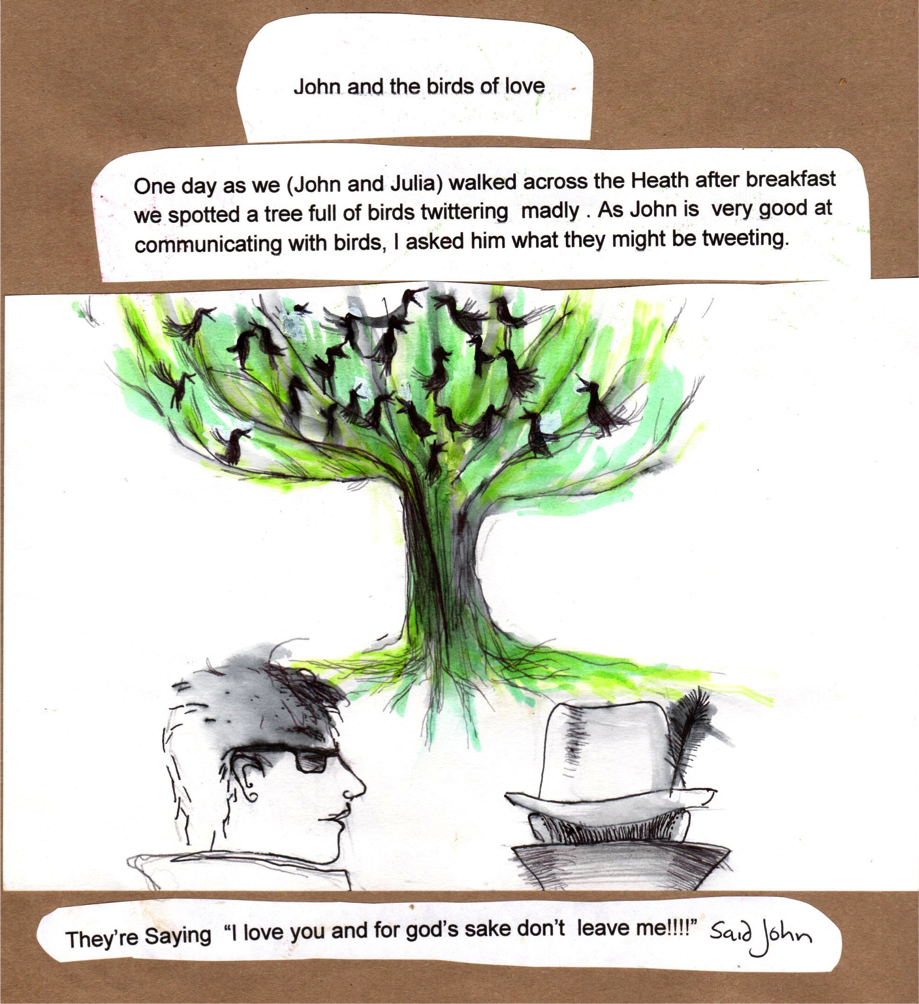Dementia: How Attachment Theory Helps
A diagnosis of dementia doesn’t need to be all about deficits. When Kate White’s husband was diagnosed with Alzheimer’s, the two psychotherapists drew on their deep knowledge of attachment theory to find a way forward. To mark Dementia Action Week, here the Bowlby Centre practitioner shares some personal and professional reflections on being a couple living with dementia, and how ‘relationship centred interventions’ can help.
John Southgate and I are both psychotherapists and have been married for 30 years. John was diagnosed with Alzheimer’s almost 10 years ago. This has led us both to a more profound understanding of the central importance of our attachment relationship as we navigate our shared experiences of this new phase in our lives with all its challenges. In addition, it has given a renewed focus and recognition of the profound simplicity and brilliance of John Bowlby’s work, as we see its applications in this field personally and professionally. Attachment theory is our shared secure base for exploration and soothing in times of both turmoil and joy, and I want to share my thoughts with you. It is moving to bring together these different parts of my life experience now that I’m almost 70.

In this image created by his companion Julia, for his scrapbook, John brings out the centrality of our need for attachment relationships throughout our lives. He echoes the words of John Bowlby, who was his supervisor:
‘Intimate attachments to other human beings are the hub around which a person’s life revolves, not only when he is an infant or a toddler or a school-child but throughout his adolescence and his years of maturity as well, and on into old age.’ (Bowlby, Attachment and Loss, Vol 3. Loss, Sadness & Depression, 1980)
In an interview with David Sheard, Founder of the leading training and research organisation Dementia Care Matters, John explains the lived experience of his Alzheimer’s.
David: “What do you feel when your memory isn’t working as well as you’d like it to John?”
John: “I feel fear, frightened because you don’t know where you are or what’s happening around you.”
David: “Can you tell us what helps you most John at those times?”
John: “Love… love, friendship and support, friends and neighbours…”
John had summarised it all with such eloquence.
How therapists can help
As Arietta Slade has said, ‘We survive by forming relationships, and adapting to the minds (and bodies) of others. Relationships are the remedy for fear – of loss, of annihilation, of psychic emptiness – and offer us the deepest expression of our humanity’ (The Place of Fear in Attachment Theory & Psychoanalysis, John Bowlby Lecture, 2008). Bowlby was also clear that attachment behavior becomes most obvious when we are frightened, fatigued or sick.
Thus, when someone receives the diagnosis of a dementia (for there are many varieties) their care-seeking system will be activated to find comfort and reassurance. As therapists we are going to be faced with our own fears and vulnerability. We will need to find ways to be alongside, learning a new language of emotional reciprocity unique to each person.
Relationship centred interventions
It is my view that ‘relationship centred interventions’ are particularly helpful for the person living with a dementia AND their caregiver. For example, a partner or another family member can be offered the opportunity to renew and revitalise their attachment relationship which, under the strain of illness, may have become fractured. Estranged and fatigued, intimacy may have become lost amidst the exhaustion and fear. We need to remember that there are three eight-hour shifts in a day of caregiving.
We were so fortunate to discover a wonderful project, pioneered by Pam Schweitzer, called Remembering Yesterday and Caring Today. This is a reminiscence group using creative arts, which involves the dyadic relationship of carer and cared for. John told me, “Its like getting my history back”. Its focus is as follows:
• Expanding, sharing in the stories of people’s lives
• Rebuilding memory and identity of self with others
• Building up self esteem
• Rediscovering the capacity for joy and vitality recognition
• Witnessing and dissolving shame
• Encouraging a narrative coherence of the participants’ lifestory
There is also the innovative project for couples: Living Together with Dementia, which is offered by Tavistock Couples.
What brings about change?
In answering this question, I have found Dan Siegel’s C.O.A.L acronym (The Mindful Brain, 2007) so helpful. It captures our need to relate through these different interventions with:
• Curiosity
• Openness
• Acceptance
• Love
A diagnosis of dementia doesn’t need to be all about deficits, fears and anxiety. Of course these are present alongside sadness and loss: where an understanding of Bowlby’s mourning process can be so facilitative. There are also new opportunities to develop and learn and have fun together. Psychotherapy with an attachment approach – whether individual, couple or group – has a part to play. But the importance of community support, emotional connection and participation in the creative arts, like music, is also vital. In John and I’s experience, all these can be transformative for families living with dementia.
Dementia: An Attachment Approach, co-edited by Kate White, is published by Routledge.